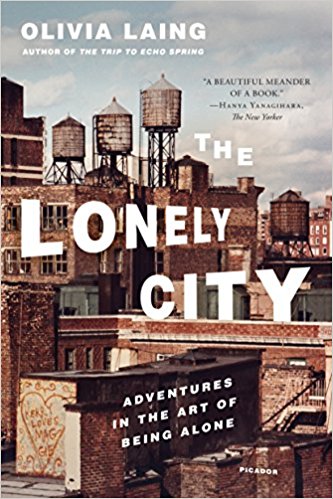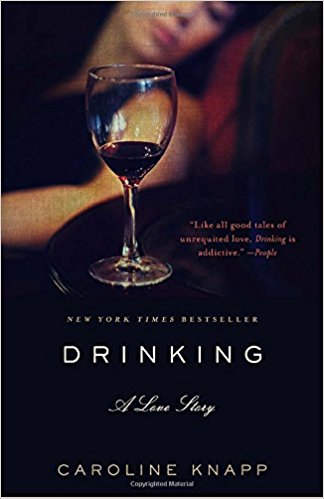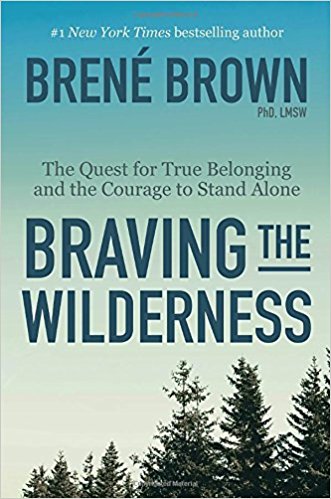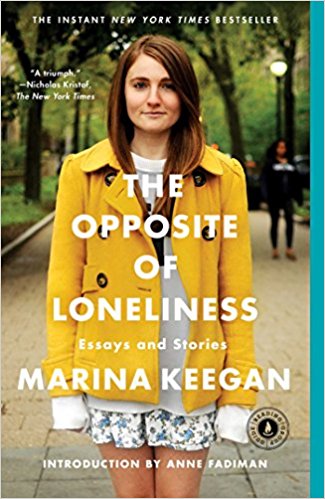If You Want to Better Understand Loneliness: Read This
by Julia Bainbridge
The percentage of American adults who say they’re lonely has doubled from 20 percent to 40 percent. For the first time ever, single adult women outnumber married adult women in the U.S. “Intelligent nursing robots” have been living with elderly residents of the Social Welfare Centre in Hangzhou, China to provide companionship in the place of family members who are increasingly too busy to visit. Two UK-based millennials, Val Stark and Stina Sanders, have created an app called Huggle, to foster friendship: In 2011, 86 percent of their peers reported feeling isolated and depressed.
I don’t share these stats to bum you about, but it is important to recognize that times are changing—and they’re making us lonely.
I started The Lonely Hour podcast to record people sharing their own experiences with this feeling in the hopes that listeners (myself included) might grow to understand loneliness better and, thus, feel less alone. It’s part of the human experience. I wanted to create a space to talk about it openly. My research includes reading—lots of reading!—and these books have been particularly helpful. They might help you wrap your head around loneliness (and solitude!), too.
The Lonely City: Adventures in the Art of Being Alone by Olivia Laing
Olivia Laing likens loneliness to being hungry in this masterful book, which came out last year. It’s part academic study and part memoir: she looks at loneliness through the work of great artists such as Edward Hopper and Andy Warhol as well as through her own experience. The book was written after a breakup, when the London native was living in New York City and approaching her mid-30s, “an age at which female aloneness ... carries with it a persistent whiff of strangeness, deviance and failure,” she writes. Her approach is similar to mine, with The Lonely Hour—loneliness is part of the human experience, so why don’t we talk about it more?—but her use of language is far superior to mine. For example, she writes about “the essential unknowability of others” and describes the kind of loneliness that comes from urban living as an “uneasy combination of separation and exposure.”
Loneliness: Human Nature and the Need for Social Connection by John T. Cacioppo and William Patrick
John T. Cacioppo is the director of the Center for Cognitive Neuroscience at the University of Chicago, and he’s been studying the effects and causes of loneliness for over 20 years. This book, which its highly scientific, packs much of what he’s learned into it—and there’s a lot. Overall, Cacioppo believes that loneliness, which he also calls “social pain,” is a kind of alarm signal. It’s nature’s way of telling us to rejoin the group, lest we compromise our health (which Cacioppo shows is linked to feeling part of a society).
Drinking: A Love Story by Caroline Knapp
Plenty of addicts describe their relationships with substance as great love affairs, and often they protect that relationship at the cost of others. That’s a lonely life. In this book, first published in 1992, the late journalist Caroline Knapp bravely details her own marriage to alcohol in the most chilling and eloquent ways. I’ll leave you with a passage that really hit home for me: “Beneath my own witty, professional facade were oceans of fear, whole ricers of self-doubt. I once heard alcoholism described in an AA meeting, with eminent simplicity as ‘fear of life,’ and that seemed to sum up the condition quite nicely. I, for example, had spent half of my professional life as a reporter who lived in secret terror of the most basic aspects of the job, of picking up the phone and calling up strangers to ask questions. Inside, I harbored a long list of qualities that made my own skin crawl: a basic fragility; a feeling of hypersensitivity to other people’s reactions, as though some piece of my soul might crumble if you looked at me the wrong way; a sense of being essentially inferior and unprotected and scared. Feelings of fraudulence are familiar to scores of people in and out of the working world—the highly effective, well-defended exterior cloaking the small, insecure person inside—but they’re epidemic in alcoholics. You hide behind the professional persona all day; then you leave the office and hide behind the drink.”
Braving the Wilderness: The Quest for True Belonging and the Courage to Stand Alone by Brené Brown
The prolific University of Houston research professor Brené Brown, whose work looks deeply into courage, vulnerability, shame, and empathy, just published this book about what she calls true belonging. It’s not something we achieve with others, she says, but something we carry in our own hearts. “Once we belong thoroughly to ourselves and believe thoroughly in ourselves, true belonging is ours.” She spends the bulk of the book, which I’ve only just begun, mapping out a clear path to true belonging. Something that struck me already: “Being ourselves means sometimes having to find the courage to stand alone, totally alone,” she writes.
The Opposite of Loneliness: Essays and Stories by Marina Keegan
The story of Marina Keegan is a sad one: An insanely gifted young writer, she was to begin a job at The New Yorker following her graduation from Yale, but she died in a car crash on Cape Cod just five days after the ceremony. This collection of some of her fiction and non-fiction works was published by Scribner in 2014, two years after her death, and it begins with "The Opposite of Loneliness," her graduation essay for the Yale newspaper that went viral. “These tiny groups that make us feel loved and safe and part of something even on our loneliest nights when we stumble home to our computers—partnerless, tired, awake,” she writes. “We don’t have those next year. We won’t live on the same block as all our friends. We won’t have a bunch of group texts.”
The Third Third of Life: Preparing for Your Future by Walter C. Wright
This isn’t about loneliness head on, but it is about the third third of life, which is a relatively new concept. That’s because we’re living longer now, but we still retire around the same age. So what do to with that time? How to feel useful, and not become depressed or isolated, which is a chronic issue among our elder population? Walter C. Wright presents this book as a kind of guide, or workbook, to help readers “design a third third that releases your potential, continues your opportunity to learn, to grow and contribute to the health of the world.”
Julia Bainbridge is the food editor of Atlanta magazine
and the host and creator of The Lonely Hour,
a podcast about loneliness that’s not a bummer.
Find more of Julia's work here & on Instagram here
Featured Books
Return to
RECENT INTERVIEWS










